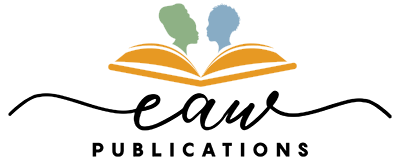Canadian Thanksgiving is less about celebrating the harvest than thanking God for keeping the early explorers safe on their way to the New World. Indeed, part of the reason Canadians have advocated putting the holiday on a Monday is that they are celebrating their good fortune, not being American.
Canada’s first Thanksgiving story, analogous to the US story of the Plymouth feast in 1621, is about pirate researcher Martin Frobisher, who was thanked for a safe journey in 1578 but mythologised when the holiday began in the 19th century.
In 1621, pilgrims honoured the first Thanksgiving in North America at Plymouth Plantation, Massachusetts, thanksgiving for the end of drought and a rich harvest. Although 17 years later recognized as the first American Thanksgiving, the pilgrims dated their first harvest in Massachusetts in 1621 14 years before several similar events in New England colonies. Thanksgiving feasts evolved from Thanksgiving feasts of French settlers to thank God for the harvest.
The first Thanksgiving
The first Thanksgiving in the Canadian Confederacy did not take place until April 1872, when the holiday was celebrated to celebrate the Prince of Wales’s recovery from a serious illness. The first Thanksgiving Day in the Confederacy was celebrated on April 5, 1872, as a holiday to celebrate his recovery from the illness of King Edward VI.
Thanksgiving was celebrated in Canada as an annual holiday on November 6, 1879. The Canadian Thanksgiving Day dates back to the 1860s when Protestant ministers in Canada called the government to declare an official holiday to remind people to thank God for the autumn harvest this year.
Thanksgiving was celebrated in late October or early November for many years before Thanksgiving was declared national holiday in 1879.
When did it begin
Thanksgiving Day in Canada originated during the colonial period from the same European tradition of gratitude for safe travel, peace and abundant harvests. In New England, colonists celebrated Thanksgiving Day with prayer and thanks to God for blessings such as military victories and the end of droughts.
It was organized at the behest of leading Protestant clergy to appropriate the American Thanksgiving Day, which had been celebrated since 1777, and in 1789 instituted a national day of public thanksgiving. As a national and religious holiday, the first Confederate Thanksgiving was held to celebrate the Prince of Wales’s recovery from King Edward VI’s illness.
While Thanksgiving in Canada, as in most countries, is celebrated as a public holiday, Canadians approach the holiday in a more relaxed way. Many of us know that Thanksgiving weekend is associated with early settlers who celebrated the harvest and supplies of the gods for the year as they prepared for the long winter in Canada.
While the actual Thanksgiving holiday falls on a Monday, Canadians gather on Thanksgiving Day, Thanksgiving weekend on a Sunday is considered more common.
Thanksgiving in Canada means families gather to eat turkey and celebrate the harvest. There are relatives who tend to not travel to Canada as far as the United States.
In fact, Thanksgiving, when Canada became secularized, was a day to thank God. In recent decades, the holiday has become more than just a day of gratitude; for Canadians, it is a day of national pride, and Thanksgiving is about friends, family, and food. The Canadian and American holidays are no longer limited to harvest activities, but have become a day to meet as a family and to thank for the general well-being.
Thanksgiving is an annual national holiday celebrated in the United States and Canada to celebrate the harvest and other blessings of the past year. Thanksgiving Day is celebrated in the US and Canada as a day to express gratitude for the harvest. The day of general thanksgiving is celebrated on the 2nd Monday of October to Almighty God for the abundant harvest with which Canada was blessed.
The Bible describes Thanksgiving as an event to thank God for providing the harvest, feeding and nourishing people during a severe winter. As in the United States, thanks to the generosity of God, “L’Action de grâce” or “Grace Thanksgiving” is celebrated in Canada, recalling the kindness of the native peoples towards the settlers of the New World.
On different dates, Lower Canada and Upper Canada celebrate Thanksgiving ; for example, in 1816, they celebrated Thanksgiving at the end of the war between France and the newly independent United States and Great Britain in 1812 (Lower Canada marked the day on May 21 and Upper Canada on June 18 at Waterloo Day).
L’Action de grâce in Canada is a feast to thank God for the grace and richness of his abundant harvest. Unlike Thanksgiving in the United States, the holiday is not tied to the history of a nation built on a simple Thanksgiving but rather is given as a time of thanks for the riches of the earth. For this reason, the historical backdrop of the days chosen for Thanksgiving in Canada and the United States, as well as the many blessings of peace and prosperity and gratefulness shared, serve as the basis for the celebration.

